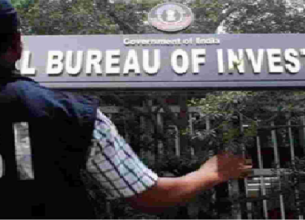CHIEF JUSTICE ADVOCATES MORE AUTONOMY TO CBI
16, Aug 2019

Prelims level : Governance- Institutional Reforms
Mains level : GS-II- Statutory, regulatory and various quasi-judicial bodies.
Why in News?
- Chief Justice of India Ranjan Gogoi has recommended a comprehensive legislation to make the Central Bureau of Investigation functional as an efficient and impartial investigative agency.
Highlights:
- The Chief Justice said that time and again, the Supreme Court had utilised its constitutional authority to ensure that the CBI functioned without any fear or favour, and in the best public interest. As a multi-faceted, multi-disciplinary investigative agency, it had for the most part of its existence enjoyed tremendous public trust.
- He opined that the CBI should be given statutory status through legislation equivalent to that provided to the Comptroller & Auditor General.
- And that the legal mandate of the CBI must be strengthened by having a comprehensive legislation addressing deficiencies relating to organisational structure, charter of functions, limits of power, superintendence and oversight.Advocating administrative and financial autonomy for the CBI, he said, “To address an increasing incidence of inter-State crimes, an argument could be made for including ‘public order’ in concurrent list, for the limited purposes of investigating such crimes,”.However, given that the superintendence and control of the agency continues to, in large measure, lie with the executive by virtue of Section 4 of the Delhi Special Police Establishment Act, 1946, the possibility of it being used as a political instrument remains ever present, he said.
Issues:
- Chief Justice Gogoi lists legal ambiguity, weak human resource, lack of adequate investment, accountability, and political and administrative interference as key concerns.
- In the context of political and administrative interference, he said that in the Vineet Narain v. Union of India case, the Suprme Court had expressed concern over the state of affairs and laid down explicit guidelines for protecting the integrity of the force.
- Under the DSPE Act, the CBI requires consent of the State concerned for investigation. Given vested interests or bureaucratic lethargy, such consent is often either denied or delayed, severely compromising the investigation. Additionally, a patch work of legislations governing the functioning of the CBI adversely affects inter-institutional coordination, both horizontally and vertically.
Central Bureau of Investigation (CBI):
- The Central Bureau of Investigation (CBI) is the premier investigating agency of India.
- It operates under the jurisdiction of the Ministry of Personnel, Public Grievances and Pensions.
- The agency has been known to investigate several economic crimes, special crimes, cases of corruption and other high-profile cases.
- Its job is to ensure a fair and an impartial probe.







